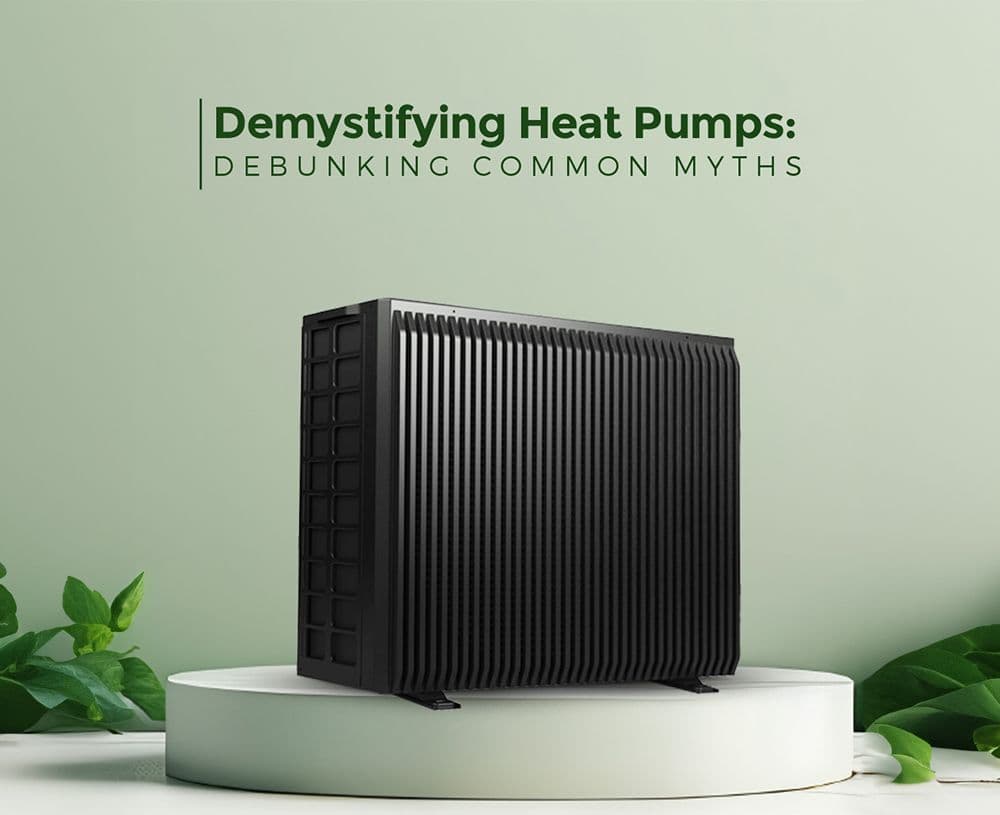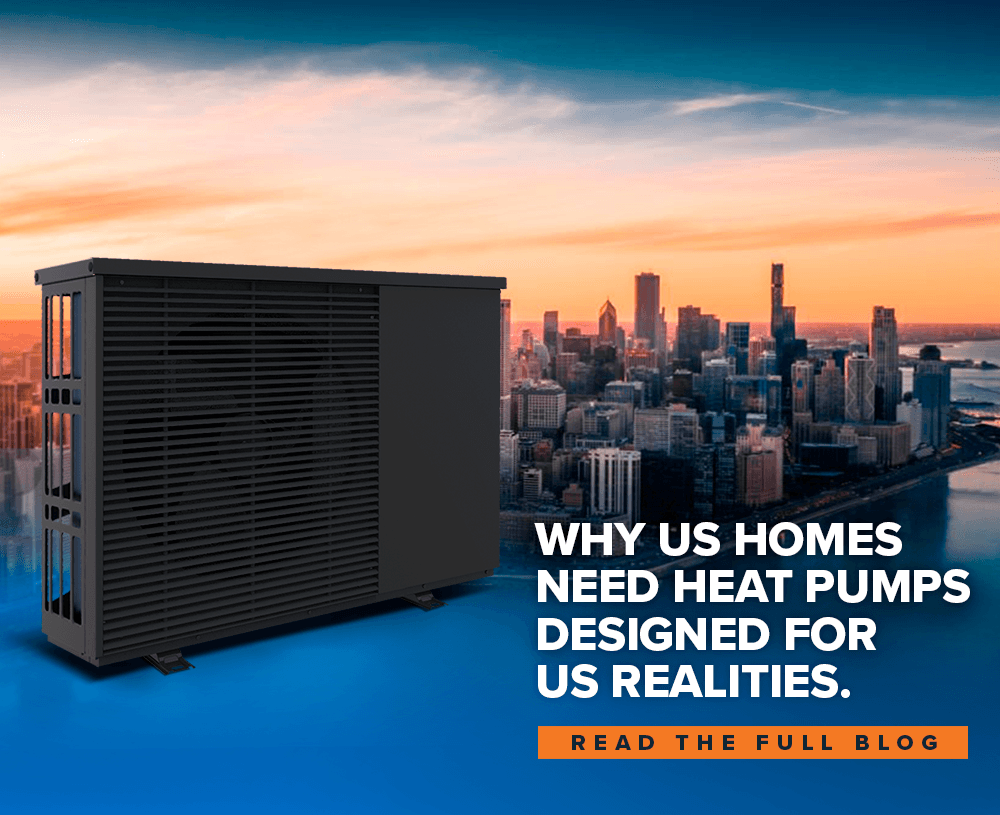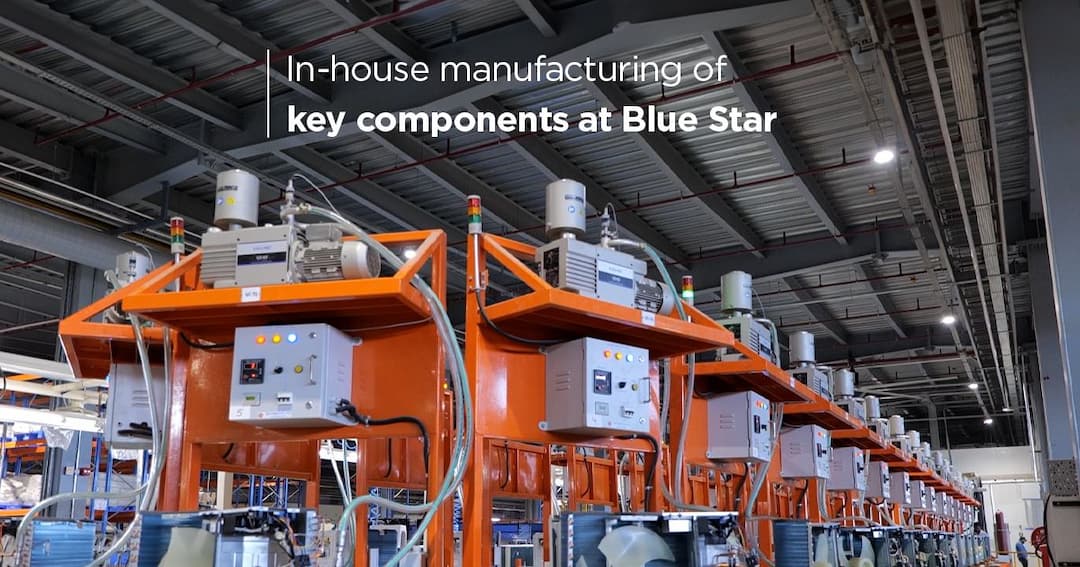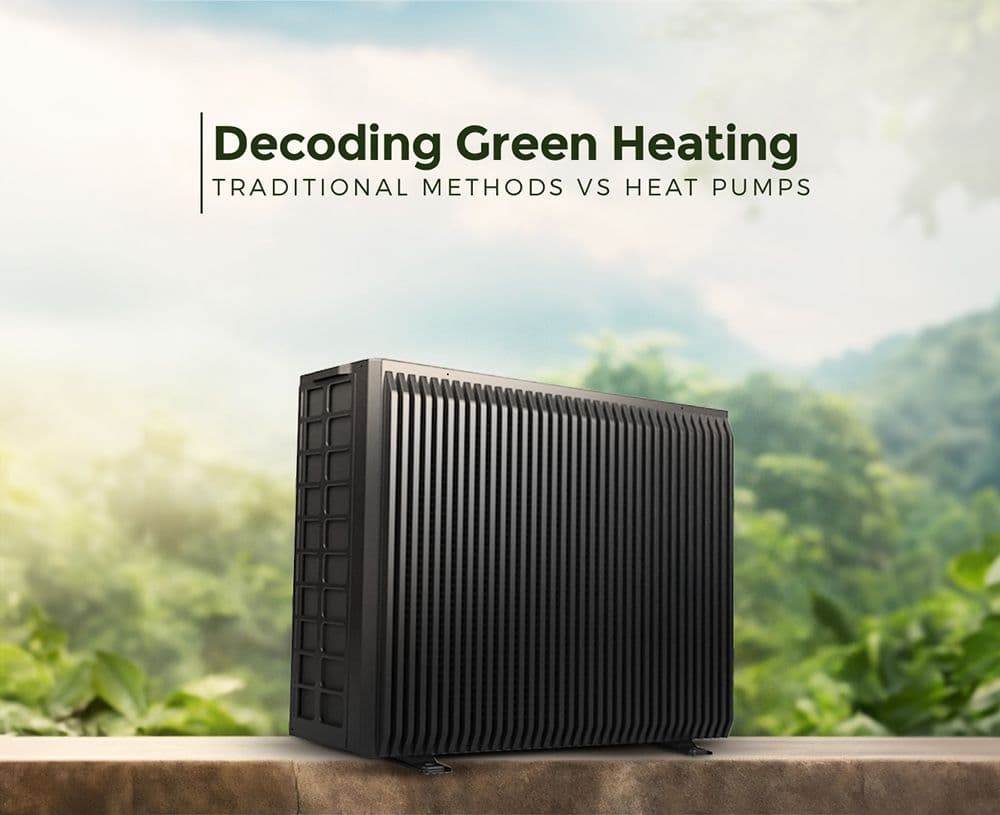Demystifying Heat Pump Technology

In the ever-evolving realm of heating and cooling technologies, heat pumps have risen as an eco-friendly and energy-efficient alternative. However, despite their increasing popularity, persistent myths surround these systems, hindering their widespread adoption. Let's unravel the truth behind common misconceptions related to heat pumps, and present an informed perspective on their functionality, efficiency, and overall benefits.
Myth 1: Energy Efficiency:
One of the most prevalent myths surrounding heat pumps challenges their energy efficiency compared to traditional heating systems. The truth is quite the opposite; heat pumps are unequivocal powerhouses of efficiency. With the capacity to generate up to four units of heat for every unit of electricity consumed, they outshine conventional heating systems. This exceptional efficiency makes them an instrumental component in the pursuit of sustainable and energy-conscious heating solutions.
Myth 2: Cold Climate Performance:
Another commonly misunderstood aspect is the performance of heat pumps in colder climates. The misconception that heat pumps struggle in low temperatures is outdated. Recent technological advancements, such as variable-speed compressors and innovative refrigerants, have transformed heat pumps into winter warriors. They can efficiently extract heat from the environment even in chilly conditions, proving their effectiveness regardless of the climate.
Myth 3: Initial Cost Concerns:
A significant deterrent to heat pump adoption revolves around the perceived high initial costs. Contrary to this notion, focusing solely on upfront expenses overlooks the broader cost-effectiveness of heat pumps. While the initial investment might be marginally higher, the long-term savings in energy costs more than compensate for it. Government incentives and rebates further sweeten the deal, making heat pumps not just an investment in comfort but also a wise financial decision.
Myth 4: Compatibility with Renewable Energy:
Another prevalent myth suggests that heat pumps are not compatible with renewable energy sources. In reality, heat pumps harmoniously integrate with solar and wind power, aligning seamlessly with the global push towards sustainable energy solutions. This integration not only reduces reliance on conventional power sources but also positions heat pumps as contributors to a greener and more sustainable future.
Myth 5: Versatility in Applications:
Some skeptics believe that heat pumps are limited in their applications. However, these systems are incredibly versatile, offering solutions beyond mere heating and cooling. Heat pumps can efficiently cater to water heating, pool heating, and even desalination. Their adaptability makes them a comprehensive HVAC solution for various needs, proving their versatility beyond the capabilities of traditional heating systems.
Myth 6: Installation Challenges:
The myth of installation challenges often deters potential heat pump adopters. However, modern heat pump systems are engineered for seamless installation. Qualified professionals can ensure a smooth setup, and advancements like ductless systems offer flexibility, making installation less invasive and more adaptable to different property types. Understanding these advancements can alleviate concerns, highlighting the accessibility of heat pump installations.
Myth 7: Environmental Impact:
Critics occasionally argue that the production and operation of heat pumps have a notable environmental impact. In contrast, the reality is that heat pumps, with their high efficiency and reduced dependence on fossil fuels, contribute significantly to lower carbon emissions. Their eco-friendly operation aligns with the broader goals of mitigating climate change and promoting sustainable living, positioning them as eco-warriors in the heating landscape.
Myth 8: Maintenance Requirements:
A pervasive myth revolves around the notion that heat pumps come with demanding maintenance requirements. The truth is that their low-key maintenance needs make them an attractive option. Regular checks and minimal upkeep contribute to their long-term reliability. Furthermore, advancements in technology, such as smart controls, further simplify the maintenance process, debunking the myth of cumbersome upkeep associated with heat pumps.
Conclusion:
By unraveling these common myths surrounding heat pumps, we unveil their true potential as energy-efficient, versatile, and environmentally friendly heating solutions. As we navigate towards a future marked by sustainable living, informed decision-making based on accurate information becomes crucial. Heat pumps, with their evolving technology and proven benefits, emerge as beacons of efficient and responsible heating in the dynamic landscape of HVAC solutions.












